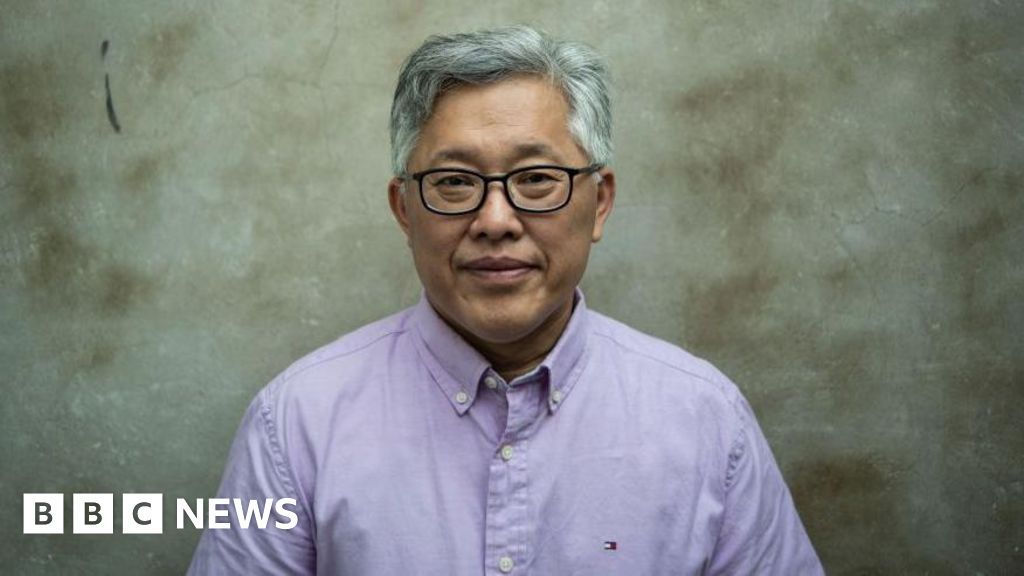Politics
US Demands China Free 30 Leaders of Underground Church Network

The United States has called for the immediate release of 30 leaders from one of China’s largest underground church networks, following their reported detention during police raids over the weekend. This group includes prominent figures such as Jin Mingri, the founder of the Zion Church, who was arrested early on Saturday after a search by ten police officers at his home, according to the US-based non-profit ChinaAid.
The Chinese Communist Party (CCP) maintains strict control over religious practices, promoting atheism and restricting religious expression. This recent crackdown is viewed by some Christian groups as the most extensive assault on their faith in decades. Many Christians face pressure to join state-sanctioned churches, which are led by government-approved pastors, forcing them to adhere to the party’s ideological stance.
The exact charges against the detained individuals remain unclear, and as of now, Beijing has not issued any official comments regarding the arrests. The Zion Church released a statement condemning this “systematic persecution,” asserting that it challenges not only the integrity of the Church but also poses a significant challenge to the international community.
In a statement on Sunday, Marco Rubio, the US Secretary of State, emphasized that this crackdown illustrates the CCP’s hostility towards Christians who reject government interference in their worship. He urged China to release the imprisoned church leaders, highlighting the growing tensions between the US and China, particularly as trade disputes resurface over tariffs and export controls.
The relationship between the two nations could face further strain, especially with a planned summit between US President Donald Trump and Chinese President Xi Jinping in South Korea later this month now in doubt. Under Xi’s leadership, the CCP has intensified its crackdown on religious freedoms, particularly targeting Christians and Muslims. In a national conference on religion in 2016, Xi called on the party to ensure that religious individuals demonstrate loyalty to the state and promote national unity.
Despite these oppressive measures, there has been a notable increase in unregistered house churches across China. The Zion Church, established by Jin in 2007 with just 20 members, has since expanded to approximately 10,000 members across 40 cities, marking it as one of the largest underground churches in the country. In September 2018, government authorities officially banned the church after it resisted attempts to install surveillance cameras at its premises in Beijing. Following this, Jin and several other leaders faced brief detentions, and many of the church’s branch congregations were subsequently investigated and shut down.
Jin’s family relocated to the United States for safety, while he chose to remain in China, continuing his pastoral duties. Authorities have since barred him from leaving the country, yet the church has persisted in gathering in small groups and sharing sermons online.
Bob Fu, founder of ChinaAid, described the recent detentions as unprecedented, labeling it the “most extensive and coordinated wave of persecution” against Christians in over four decades. Fu noted that this national campaign recalls the darkest periods of the 1980s when urban churches began to re-emerge after the Cultural Revolution.
In a heartfelt letter seeking prayers, Jin’s wife, Liu Chunli, expressed her profound emotions, describing feelings of shock, grief, and anger over her husband’s situation. She asserted his innocence, stating, “He simply did what any faithful pastor would do,” and lamented the continued separation from her husband after more than seven years.
Several house churches throughout China have also publicly called for the release of the detained leaders. Sean Long, a pastor from Zion Church residing in the US, mentioned that Jin had anticipated a crackdown of this magnitude. In a recent Zoom conversation, Jin expressed his belief that such challenges could lead to spiritual revival, stating, “Hallelujah! For a new wave of revival will follow then!”
The situation remains tense as the international community watches closely, with many advocating for the protection of religious freedoms in China.
-

 Business5 months ago
Business5 months agoKenvue Dismisses CEO Thibaut Mongon as Strategic Review Advances
-

 Lifestyle4 months ago
Lifestyle4 months agoHumanism Camp Engages 250 Youths in Summer Fest 2025
-

 Sports4 months ago
Sports4 months agoDe Minaur Triumphs at Washington Open After Thrilling Comeback
-

 Sports5 months ago
Sports5 months agoTupou and Daugunu Join First Nations Squad for Lions Clash
-

 Top Stories5 months ago
Top Stories5 months agoColombian Senator Miguel Uribe Shows Signs of Recovery After Attack
-

 World5 months ago
World5 months agoASEAN Gears Up for Historic Joint Meeting of Foreign and Economic Ministers
-

 Health4 months ago
Health4 months agoNew Study Challenges Assumptions About Aging and Inflammation
-

 Business5 months ago
Business5 months agoOil Prices Surge Following New EU Sanctions on Russia
-

 Entertainment4 months ago
Entertainment4 months agoDetaşe-Sabah Violin Ensemble Captivates at Gabala Music Festival
-

 Entertainment4 months ago
Entertainment4 months agoBaku Metro Extends Hours for Justin Timberlake Concert
-

 Top Stories5 months ago
Top Stories5 months agoRethinking Singapore’s F&B Regulations Amid Business Closures
-

 Business5 months ago
Business5 months agoU.S. House Approves Stablecoin Bill, Sends to Trump for Signature









